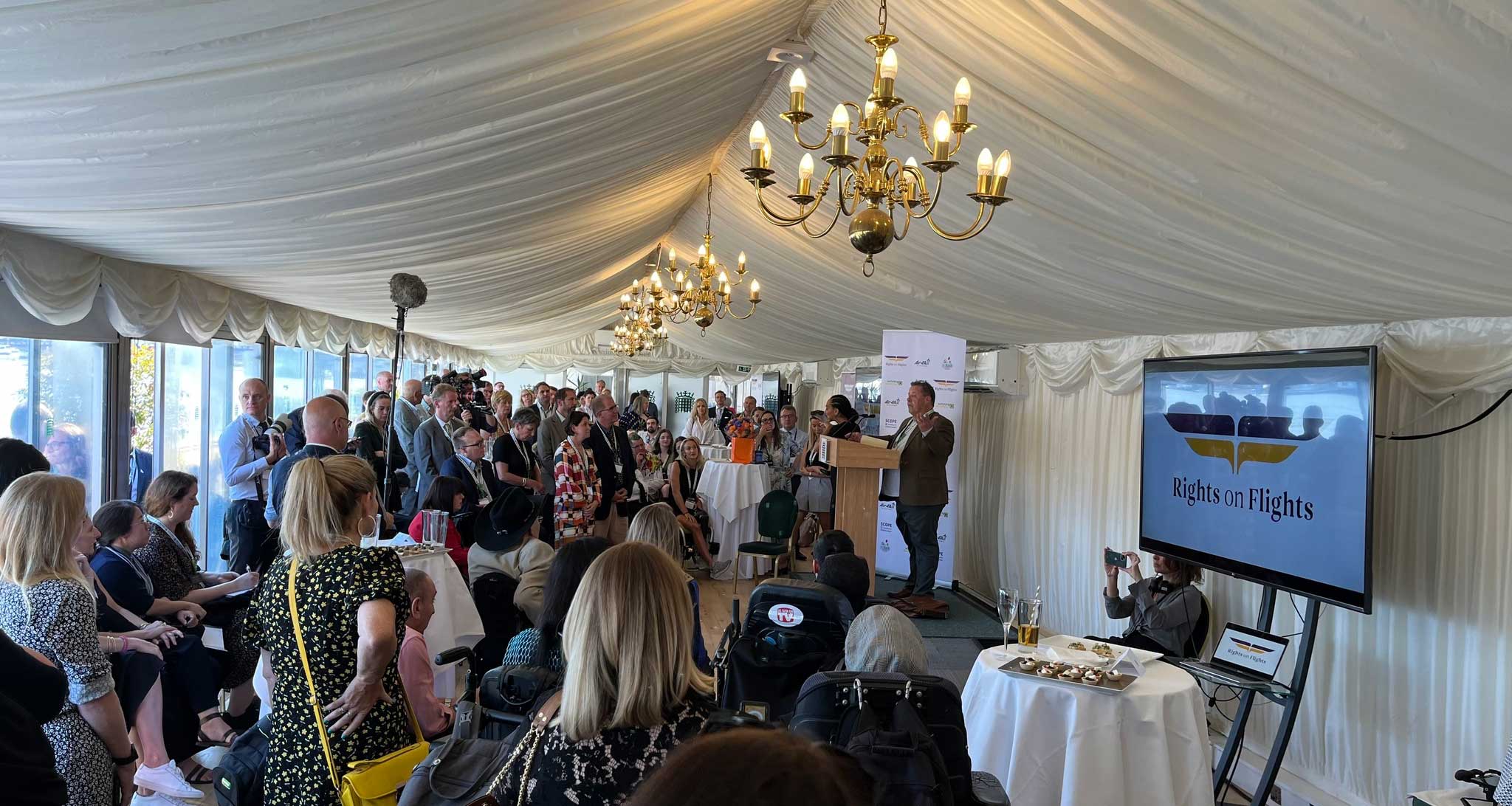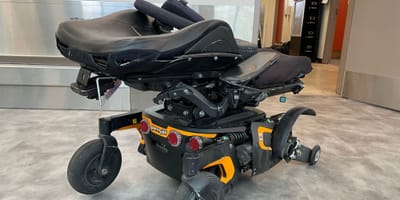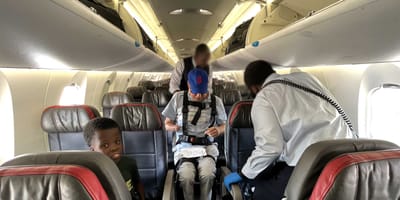Advocacy for accessible air travel across the pond in the United Kingdom ratcheted up last week, as the Rights on Flights advocacy group gathered on a terrace outside the House of Commons at the UK Parliament.
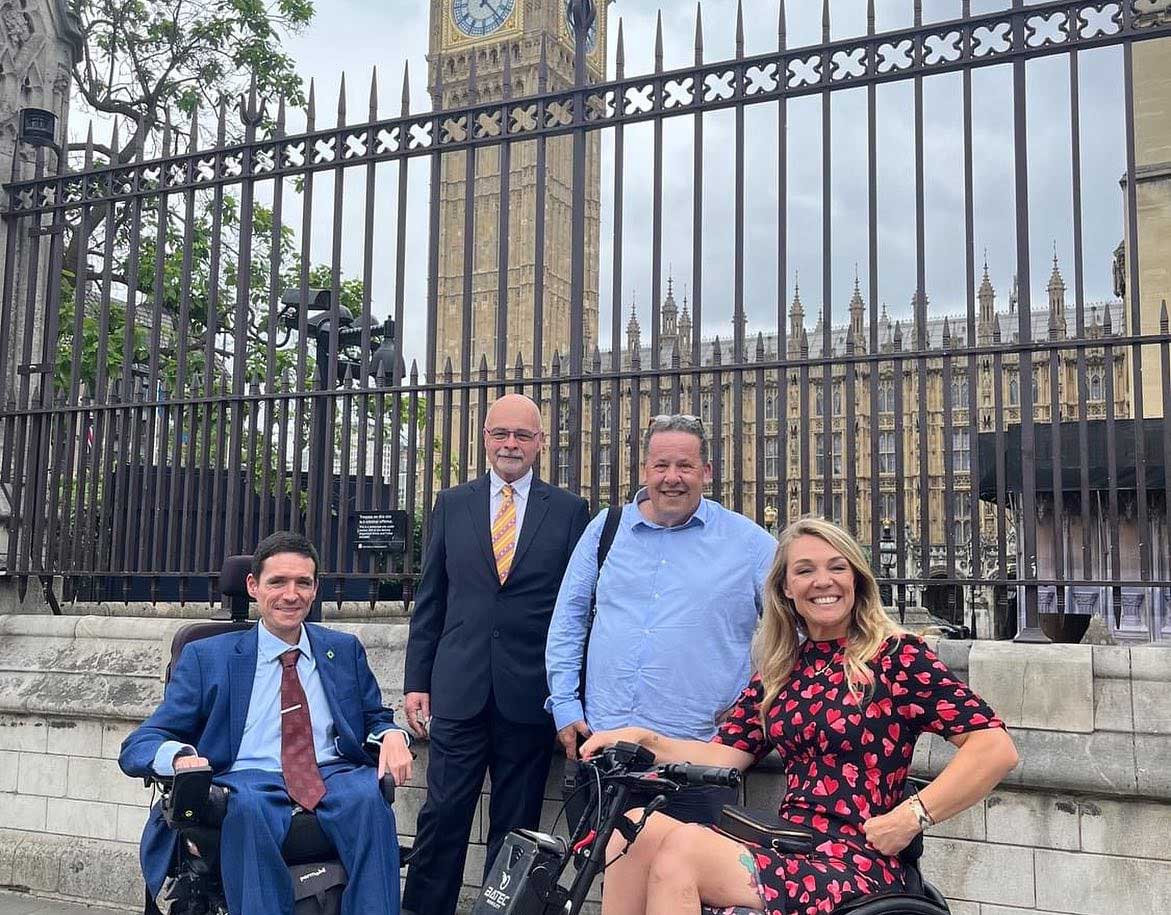
The Rights on Flights campaign was launched by a quartet of UK disability advocates — TV presenter Sophie Morgan, Flying Disabled founder and Air4All co-founder Chris Wood MBE, Able Move founder Josh Wintersgill, and Reduced Mobility Rights founder Roberto Castiglioni MBE. It’s a group of people that I have tremendous respect for, and was honored to receive an invitation to their campaign kick-off in London.
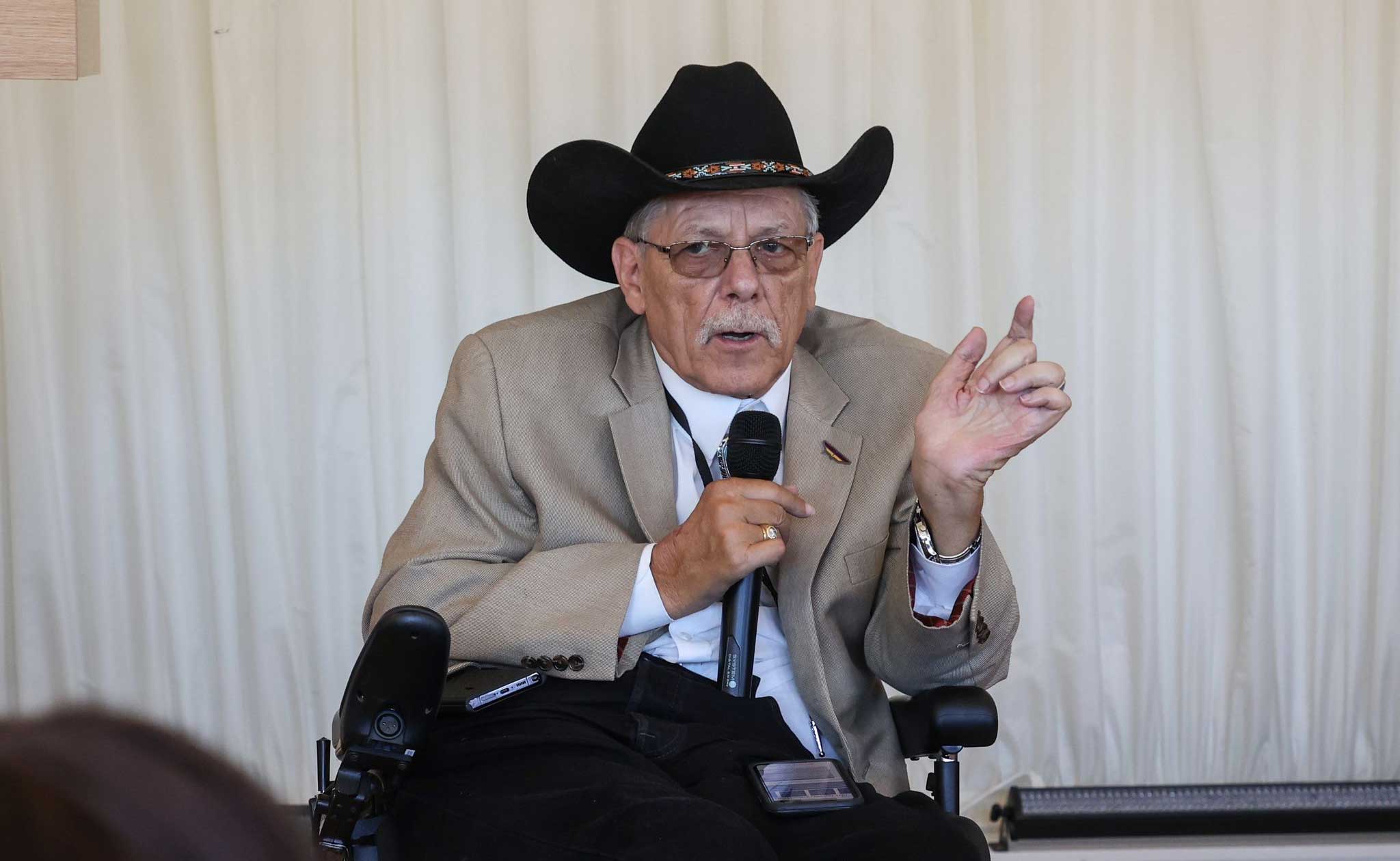
Speakers at the event included members of the RoF team, as well as representatives from national disability rights organizations, members of parliament, and USDOT Policy Advisor Kelly Buckland. Many reflected on challenges they had faced while flying with a disability, and their speeches encouraged action to make air travel accessible to everyone.
In considering whether to accept the invitation, which required an overnight trip to London, England, I knew that there had to be something more than a group of disabled travelers reflecting on decades of discrimination in air travel. Not because those stories aren’t important, but because they haven’t done much to move the needle — for years, I’ve been quoted almost weekly in news articles about the unacceptable state of air travel for wheelchair users.
Rights on Flights isn’t a movement focused on raising grievances — it’s solution-oriented. At their Palace of Westminster reception, the group unveiled a major policy initiative, a proposal they call the Assisted Air Travel Act. You can find the latest draft version of the act on the Rights on Flights website.
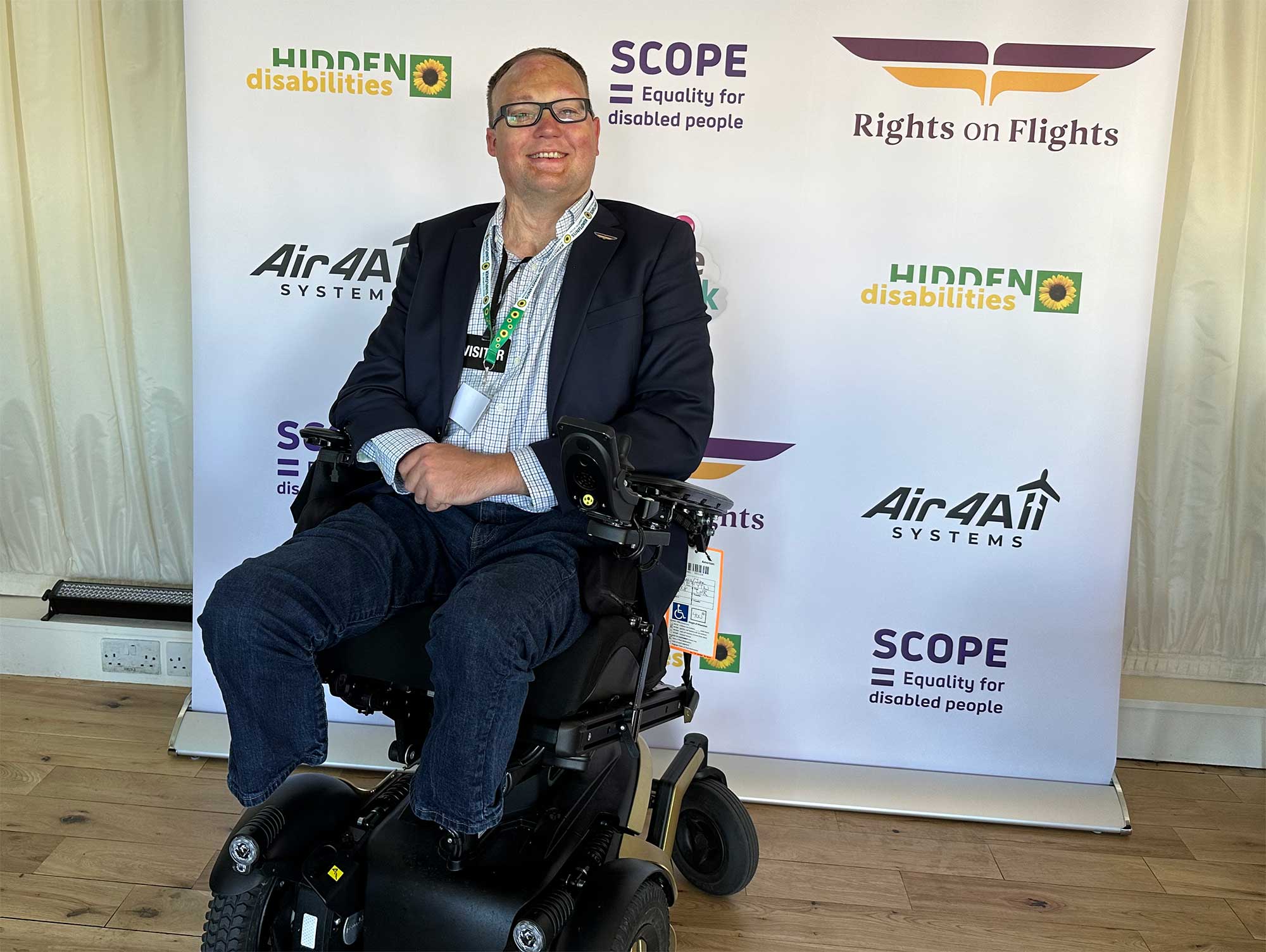
The text of the act lays out five key tenets, which it describes as “a seamless blend of harmonisation, inclusion, transparency, accessibility, and fairness.” Here’s why each of these are important:
- Harmonization — By applying the same standards across national borders, compliance is simplified for air carriers and their third-party contractors. The same rules would apply to all flights, worldwide. Should countries adopt similar regulations, it is critical that those rules be the right ones to maximize accessibility, independence and freedom of movement for disabled people.
- Inclusion — The Act aims to “ensure the disability community is properly represented in both supervision and decision-making roles, as well as providing more opportunities for disabled people to pursue a career in aviation.” Few regulatory bodies and even fewer airlines involve disabled people in decision making, which can no longer be acceptable.
- Transparency — The proposal suggests new requirements for data collection and sharing between airlines, airports, contractors, regulators and the public, ensuring that any failures are quickly identified and no party is able to hide in the darkness.
- Accessibility — The proposal aims to set design standards for both the built and aircraft environments, which the group hopes will allow the industry to become “wholly accessible,” which can include the regulation of a wheelchair space on airplanes.
- Fairness — The proposal aims to set proper expectations for the return of mobility devices, introduces the CRO to all jurisdictions (read what a CRO is), and prescribes an enforcement mechanism where first-time offenders are warned and subsequent offenses face harsher action. Under existing laws, governments either lack the proper authority to carry out enforcement action, or simply refuse to do so.
Many of the ideas presented in the proposed Assisted Air Travel Act are excellent and long overdue, but this project remains in draft form and your input is desired. Read the document, then share your thoughts with the Rights on Flights team. You can also discuss your ideas for the future of accessibility regulations in the comments section below.

